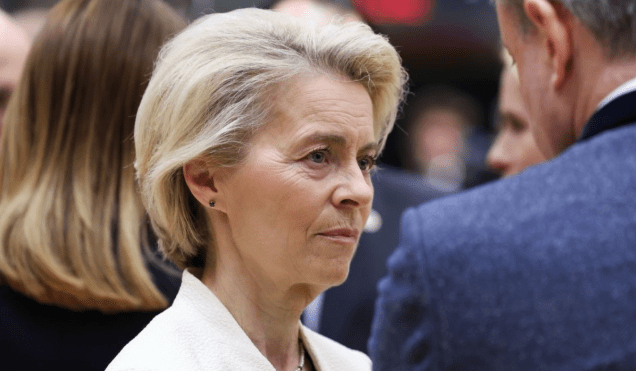Ursula von der Leyen, a former medical doctor and now President of the European Commission, is applying a drastic remedy to her flagship climate policy. Faced with growing political resistance, she is paring back the European Green Deal to protect its core.
Von der Leyen’s initiative, once heralded as a sweeping transformation of the EU economy, is now being reshaped in response to fierce opposition. That includes pushback from corporate interests, the far-right, and even from within her own political group, the European People’s Party (EPP).
Despite the upheaval, her office insists the central mission remains unchanged. “We’re standing firm by the European Green Deal. Climate change won’t go away,” stated Paula Pinho, Chief Spokesperson for the European Commission.
Political Headwinds and Tactical Retreat
Since its launch in 2019, the Green Deal promised to deliver a net-zero EU by 2050, cutting emissions across agriculture, transport, and energy. But the political winds have shifted.
Last year’s EU elections ushered in a new, right-leaning majority. Manfred Weber, head of the EPP, has used this shift to challenge climate-related legislation.
Von der Leyen’s response? Compromise. She’s supported looser emission standards for cars, relaxed corporate environmental rules, and reallocated green funding. Crucially, though, the 2050 net-zero ambition and its legislative framework remain intact.
“[The president] remains committed to the Green Deal, it just now has to incorporate some of these changed realities,” said a Commission official familiar with von der Leyen’s strategy.
A Leaner Green Deal
Back in 2020, von der Leyen described the Green Deal as more than just a plan to slash emissions. That vision has since narrowed. The current emphasis is on preserving essential climate laws and cutting greenhouse gas pollution.
This pivot aligns more closely with what the EPP can accept. Regulatory cuts have followed. Reporting requirements for corporate environmental impact have been scrapped. A planned pesticide control law was shelved. Even the 2035 ban on combustion engine vehicle sales has been diluted.
Efforts to regulate agricultural carbon emissions have stalled, too. The move away from an all-encompassing Green Deal has angered progressive forces.
“All this demonisation of the climate policies … creates a lot of uncertainty. It is von der Leyen’s role to defend what for her has been so important in the previous legislation, meaning the Green Deal. And she should not give up,” said Vula Tsetsi, co-chair of the European Green Party.
Greenwashing Bill Sparks Uproar
Tensions reached a peak last Friday when von der Leyen appeared to bow to pressure from EPP and far-right factions by suggesting the withdrawal of an anti-greenwashing proposal. The backlash was swift.
“VDL needs to get EPP in line,” said Tiemo Wölken, a Socialist MEP involved in drafting the law. He accused the EPP of trying to “kill everything related to the sustainability agenda.”
The Commission later clarified its stance, indicating support for the bill provided it excludes the smallest businesses.
Further challenges loom. A new proposal on the EU’s 2040 climate target is expected next week. France and other nations want to prevent this target from influencing immediate climate policy, which could undermine the EU’s timeline.
The EPP has voiced concerns too, calling for more national flexibility in meeting emissions goals.
The Commission’s draft offers a compromise: allowing wealthier countries to offset some of their emissions by investing in cuts abroad. Yet von der Leyen remains steadfast on a 90% emissions reduction target — a clear signal she’s not ready to abandon the Green Deal’s spine.
The battle for Europe’s climate future continues. Whether von der Leyen’s surgical approach will save the Green Deal or dilute it beyond recognition remains to be seen.






